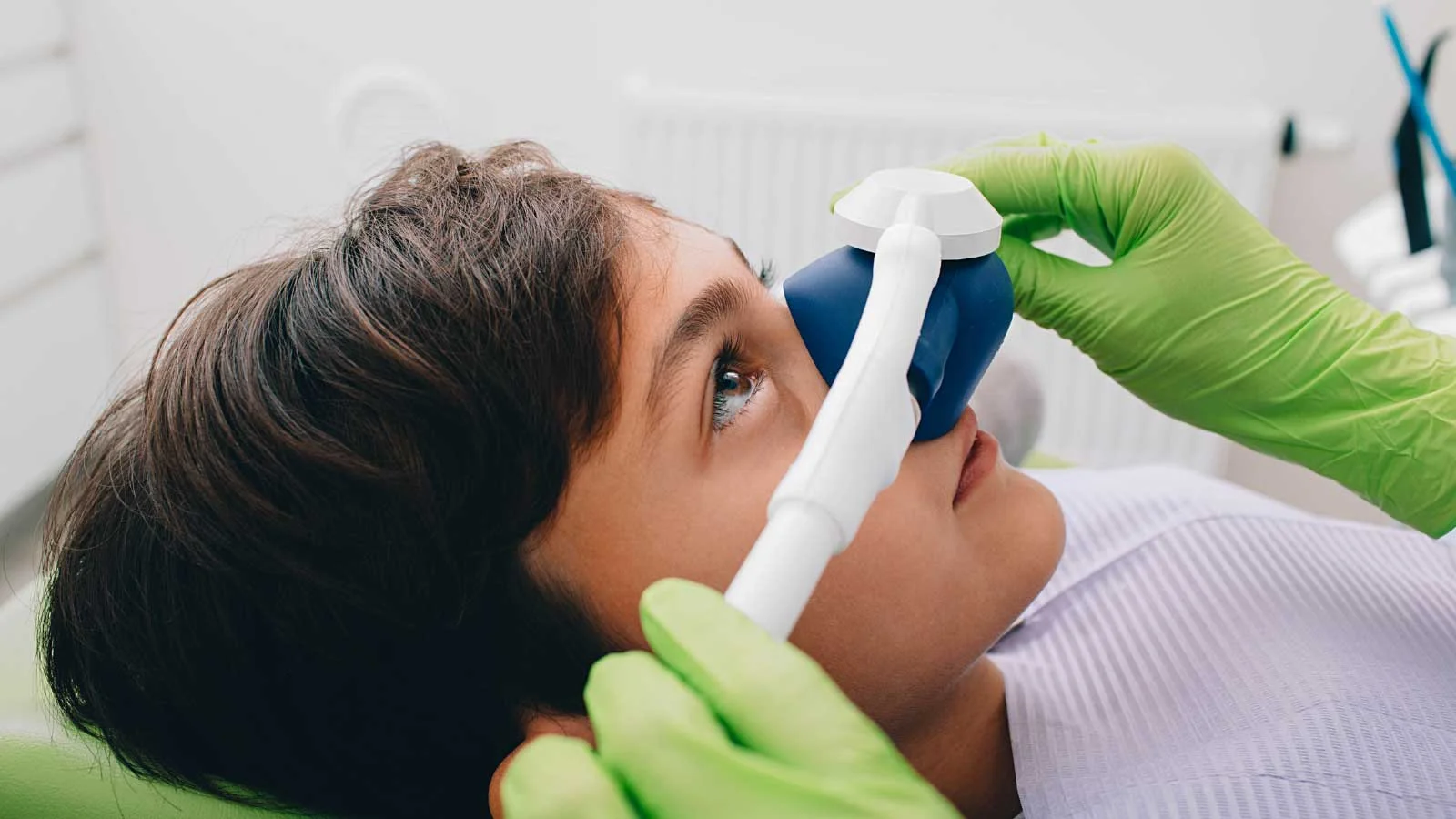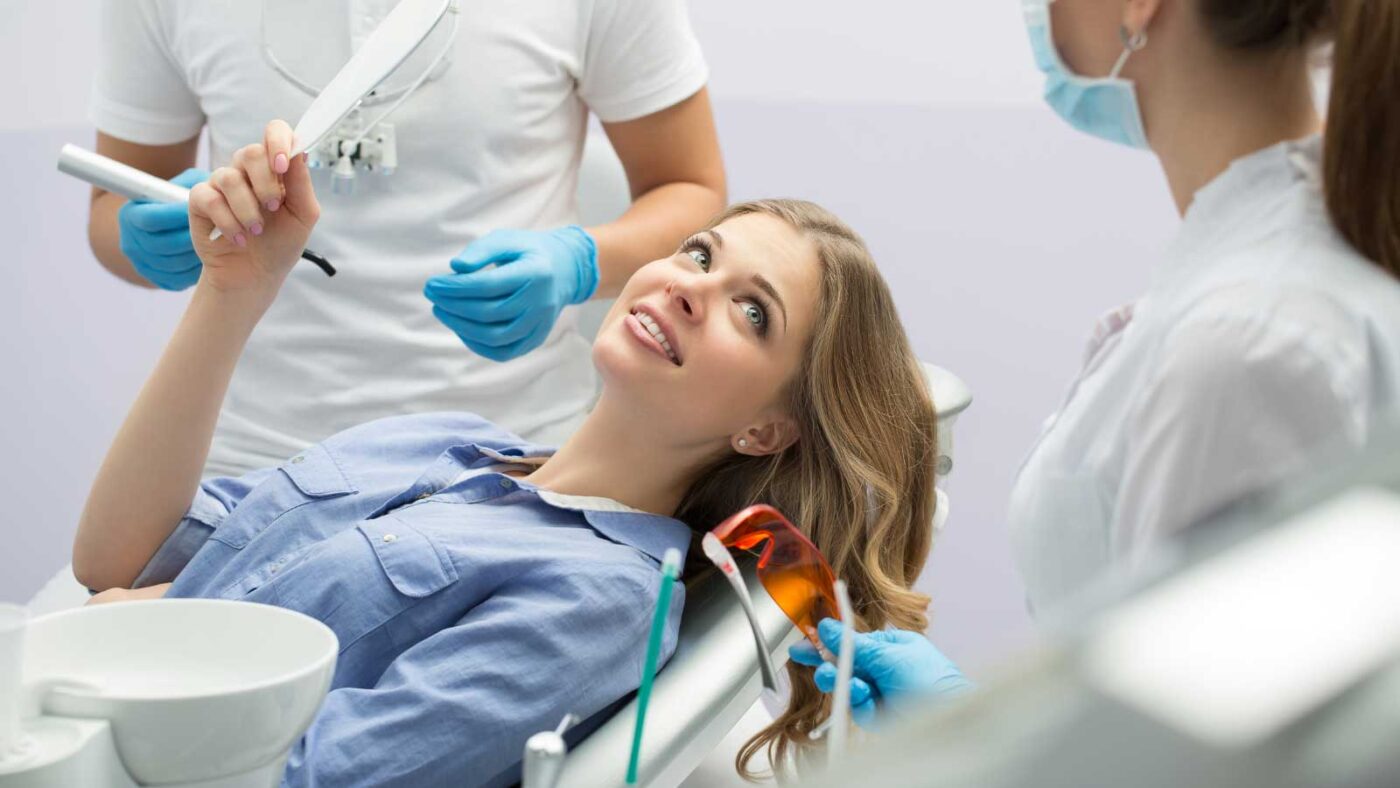Sedation Dentistry: How It Works and What to Expect

Dental anxiety makes even simple procedures feel overwhelming. The thought of needles, drills, or prolonged time in the dentist’s chair can trigger stress, fear, or even panic. For some, even the smell of a dental office can cause discomfort. Others may have had past traumatic experiences that make future visits even more daunting.
But delaying dental care doesn’t make the fear disappear—it can lead to more complex oral health issues requiring even more treatment. The good news is that modern dentistry has come a long way, with advanced techniques and medications that make procedures safer and more comfortable than ever.
This is also where comprehensive sedation therapy can help. Sedation dentistry allows patients to undergo dental procedures comfortably and without fear. In this blog, we’ll address common concerns about sedation dentistry and what you can expect if you choose this option for your next visit.
Table of Contents
- What Is Sedation Dentistry?
- How Dental Sedation Works in Modern Dentistry
- Types of Dental Sedation: Nitrous Oxide, Oral, and IV Options
- How Sedatives Affect Your Body During Dental Procedures
- Who Administers Dental Sedation and Their Qualifications
- Safety Protocols and Monitoring During Sedation Dentistry
- What to Expect During Your Sedation Dentistry Appointment
- Before Your Appointment: Preparation Guidelines and Requirements
- During Treatment: The Patient Experience Under Sedation
- After Sedation: Recovery Time and Post-Procedure Effects
- Follow-Up Care: What Happens After Your Sedation Appointment
- Conclusion: Is Sedation Dentistry Right for You?
What Is Sedation Dentistry?
Sedation dentistry uses medication to help patients relax during dental procedures. Unlike general anesthesia, most sedation methods keep you awake but in a calm, stress-free state. This approach makes it easier for people with dental anxiety, a strong gag reflex, or difficulty sitting still to receive the care they need.
The benefits of sedation dentistry include:
- Anxiety reduction: Patients feel relaxed and less worried about the procedure.
- Pain control: Sedation helps minimize discomfort during treatment.
- Better cooperation: Ideal for patients with involuntary movements or dental phobia.
- Time efficiency: Complex or multiple procedures can be completed in fewer visits.
- Enhanced patient experience: Allows for a more comfortable and stress-free dental appointment.
With different sedation options available, dentists can tailor the approach to match each patient’s needs and make their procedure as comfortable as possible.
How Dental Sedation Works in Modern Dentistry
Sedation dentistry relies on medication to create a relaxed, anxiety-free experience for patients undergoing dental procedures. Depending on the sedation type, patients may remain fully awake, semi-conscious, or completely asleep.
Understanding how it works revolves around these variables:
Types of Dental Sedation: Nitrous Oxide, Oral, and IV Options
Dental sedation options vary in strength, offering different levels of relaxation based on patient needs. Nitrous oxide, or laughing gas, provides mild sedation, keeping patients awake but at ease. The effects wear off quickly, making it ideal for those with mild anxiety. Oral sedation, taken as a pill, induces deeper relaxation, causing drowsiness while keeping patients responsive. IV sedation works fastest, delivering the deepest level of relaxation, often with little to no memory of the procedure.
Each method ensures a more comfortable experience, whether for mild nervousness or complex treatments. Since oral and IV sedation have lingering effects, patients will need someone to drive them home. Your dentist can help determine the best option based on your anxiety level and treatment plan.
How Sedatives Affect Your Body During Dental Procedures
Sedatives work by slowing down brain activity and reducing fear and stress responses. They help block pain perception, allowing patients to remain comfortable throughout the procedure. While minimal sedation keeps patients alert, deeper sedation levels can cause partial or complete memory loss of the experience.
Most sedatives also induce muscle relaxation, which helps individuals with strong gag reflexes or difficulty keeping their mouth open for extended periods. Patients under moderate or deep sedation may experience slowed breathing and lower blood pressure, so continuous monitoring is essential. Once the sedative wears off, cognitive function gradually returns to normal, though some drowsiness may persist.
Who Administers Dental Sedation and Their Qualifications
Not all dentists are qualified to administer sedation, and the level of training required depends on the sedation type. General dentists can typically provide nitrous oxide and oral sedation with proper certification. However, IV sedation and general anesthesia require additional specialized training and licensing.
Deeper sedation methods may involve an anesthesiologist, dental anesthetist, or specially trained oral surgeon. These professionals undergo extensive training in sedation techniques, patient monitoring, and emergency response. Before undergoing sedation, patients should confirm their provider’s qualifications and experience in administering the specific type of sedation recommended for their procedure.
Safety Protocols and Monitoring During Sedation Dentistry
Patient safety is a top priority during sedation dentistry. Dentists follow strict guidelines to ensure sedation is administered correctly and patients remain stable throughout the procedure. Before treatment, a complete medical history review is conducted to identify potential risks or contraindications.
Vital signs such as heart rate, blood pressure, and oxygen levels are closely monitored during sedation. Trusted endodontic specialists and dental anesthesiologists are trained to recognize and address potential complications. Emergency equipment, including oxygen tanks and reversal agents, is always on hand in case of an adverse reaction. These precautions help deliver a safe and controlled sedation experience.
What to Expect During Your Sedation Dentistry Appointment
Understanding what happens before, during, and after sedation can help ease any concerns. Each sedation method has different effects, requiring careful preparation and recovery steps. For a clearer comprehension of what to expect, we’ve broken down expectations into four stages:
Before Your Appointment: Preparation Guidelines and Requirements
Preparation depends on the type of sedation used. Minimal preparation is required for nitrous oxide, and patients can eat and drink normally before their appointment. However, dentists usually advise fasting for several hours before the procedure for oral or IV sedation to prevent complications.
If undergoing moderate to deep sedation, patients should arrange for a responsible adult to drive them home. Wearing loose, comfortable clothing is also recommended to allow for easy monitoring. Those taking regular medications should inform their dentist in advance to ensure there are no potential interactions with the sedative.
During Treatment: The Patient Experience Under Sedation
The effects of sedation vary depending on the method used. Nitrous oxide provides a mild, calming sensation within minutes while allowing patients to stay fully alert. Oral sedation takes longer to take effect and induces a deeper sense of relaxation, often making time feel shorter. IV sedation works almost instantly, creating a dreamlike state where patients remain responsive but deeply relaxed.
Throughout the procedure, the dental team carefully monitors vital signs to ensure safety. No matter the sedation type, the goal is to reduce stress and discomfort, making dental care a more positive experience.
After Sedation: Recovery Time and Post-Procedure Effects
Recovery depends on the depth of sedation used. Nitrous oxide wears off quickly, and patients can resume normal activities immediately. Oral and IV sedation, however, take longer to clear from the body, and drowsiness may persist for several hours. It’s best to rest for the remainder of the day and avoid activities that require focus, like driving or operating machinery.
Mild side effects, such as dry mouth, dizziness, or slight nausea, are common but usually temporary. Drinking plenty of fluids and following post-procedure care instructions can help ease recovery. If you notice anything unusual, contact your dentist right away.
Follow-Up Care: What Happens After Your Sedation Appointment
Proper aftercare ensures a smooth recovery and helps prevent complications. Patients who undergo oral or IV sedation should avoid operating heavy machinery, making important decisions, or engaging in strenuous activities for the rest of the day. Eating soft foods and staying hydrated can help with any lingering grogginess.
A reliable oral surgeon or dentist will provide detailed aftercare instructions based on the procedure. Patients may need a follow-up appointment to assess healing and address any concerns. If side effects persist beyond the expected recovery time, contacting the dentist is essential for further evaluation.
Conclusion: Is Sedation Dentistry Right for You?
Sedation dentistry is a valuable option for patients who experience anxiety, have difficulty sitting through procedures, or require extensive dental work. It allows for a more comfortable and stress-free experience while ensuring necessary treatments are completed efficiently.
With different sedation levels available, dentists can tailor the approach based on individual needs, making dental care more accessible for those who otherwise avoid it.
Before choosing sedation, it’s important to discuss your medical history, anxiety levels, and treatment needs with your dentist. They will help determine the safest and most effective option for you. Whether it’s mild nitrous oxide or deeper IV sedation, the goal is to provide a positive experience that supports your comfort and oral health.

